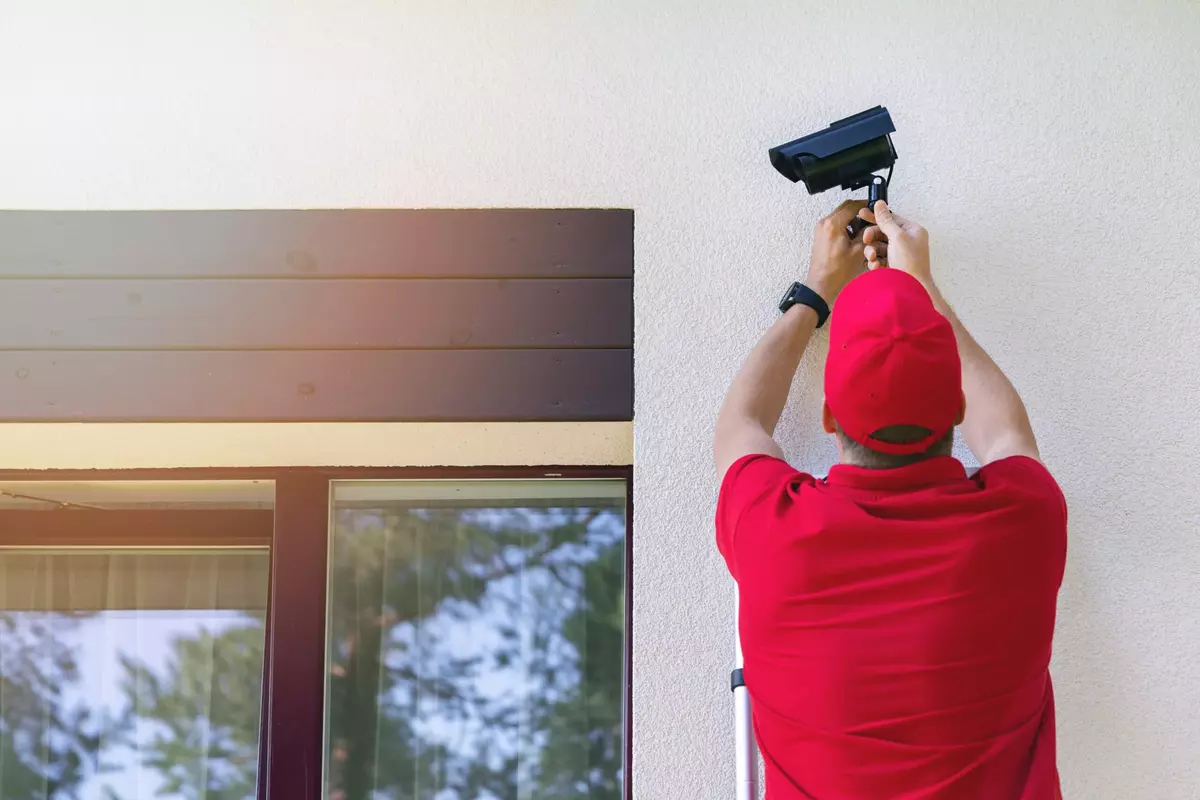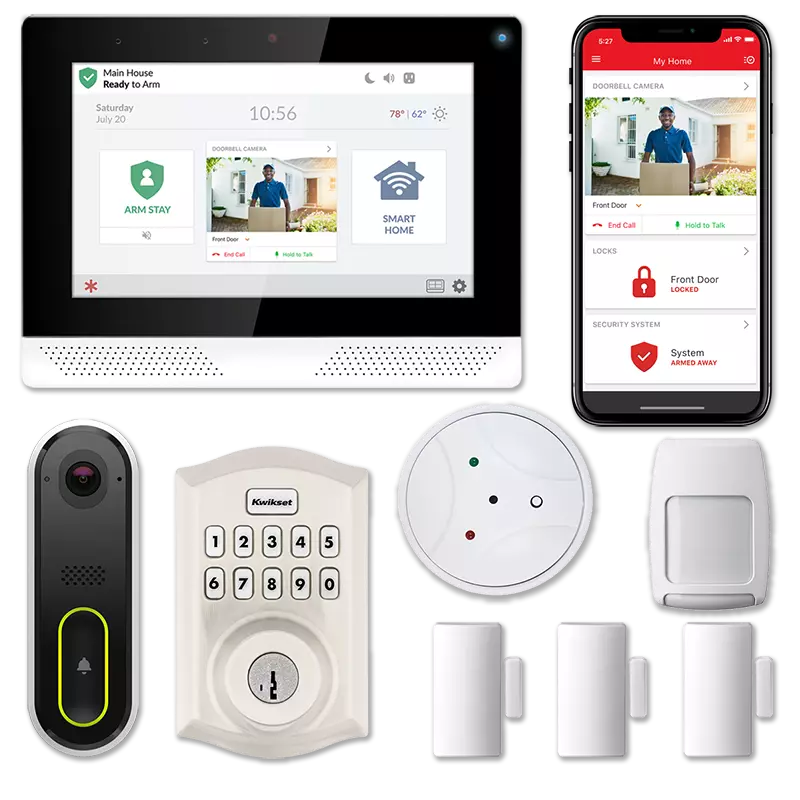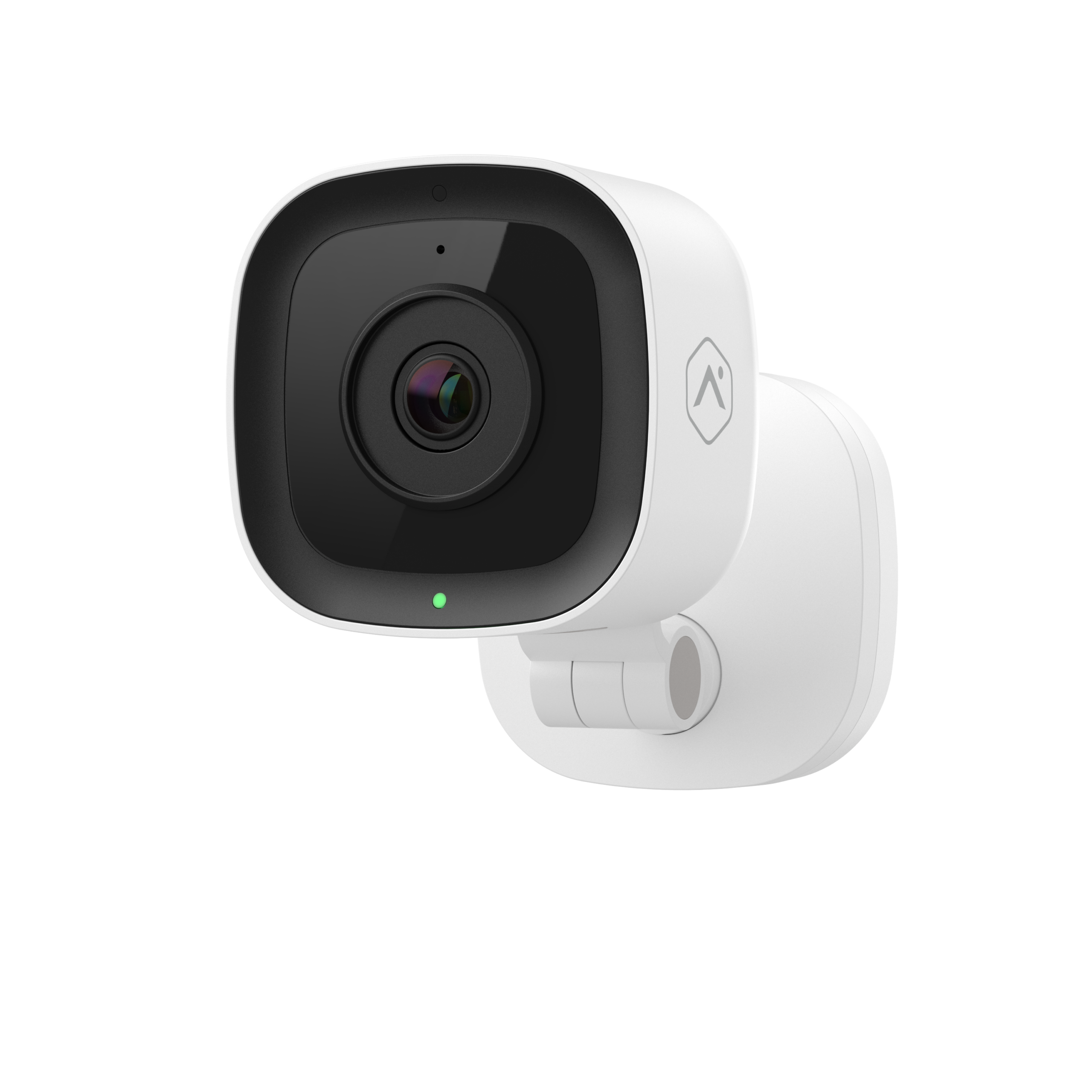Security Cameras: Wired vs. Wireless
The cameras in a security system are its foundation for safety. But now, with so many options, how can we make sure we choose the best one? Security packages come with several options in cameras. You can pick from doorbell cameras, interior, and exterior. Even then, it goes a step further. Do you want a wireless or wired cameras? Here are a few pros and cons to consider when making this choice:
Why Do Some Choose Wired Cameras?
Many make this choice just because it has been the traditional way to do things. If you have an older home with an installed home security system, wired cameras are most likely there. A wired camera is exactly what it sounds like it is. It needs wires to connect it to a power source, the internet, and a recording and storage device.

Pros:
- Reliability is better due to the direct connection to the network.
- No batteries need replacing.
- Able to record 24/7.
- Can view video recordings on an app through a smartphone.
- More secure from the intrusion of hackers.
- No cloud storage fees monthly.
Cons:
- High set up cost due to professional wiring required.
- Software is not as friendly as the wireless apps.
- Not compatible with virtual assistants.
- Limited recording capacity, usually 7 to 14 days.
- Power outages will affect recording ability.

Is Wireless Better?
Wireless cameras are becoming more popular with newer security systems. Customers like them for their flexibility in location placement. Without wires, the options for their usage broaden out. There are two types of wireless cameras. One is wireless-free from the ethernet but still requires a power cord. Then, there are the truly wireless cameras that function on battery power.
Pros:
- Easy to install, no wiring to run in the walls. DIY possible.
- View recorded or live-stream video on your smartphone through an app.
- Place anywhere around the home without wires.
- Use cloud storage or an SD card in the camera to store video.
- Battery power keeps cameras working during outages.
- Ideal for renters or temporary living arrangements.
- Works with voice-activated virtual home assistants.
Cons:
- Cloud storage of videos may have a fee.
- Video not able to record 24/7 with battery drainage.
- Video mainly motion-sensor activated.
- Nearby neighborhood signals may interfere.

Which One is Best For You?
The decision between wireless or a wired security camera is a personal choice made with your individual circumstances in mind. Do you have a larger home that you plan on staying in for a while? Do you have difficulty getting a good internet connection and WiFi service? Then, hard-wired security cameras may be for you. Just renting or in a temporary location? Like using home automation and your virtual assistant? Then the wireless option may be better for you. Whatever your conclusion is, make good, safe choices to protect your family. Adding in a monitoring service by Brinks Home Security adds that extra layer of safety. If you have any questions or concerns and would like to get assistance, give us a call at True Protection. We will be more than happy to guide you through your options. Call us today!
